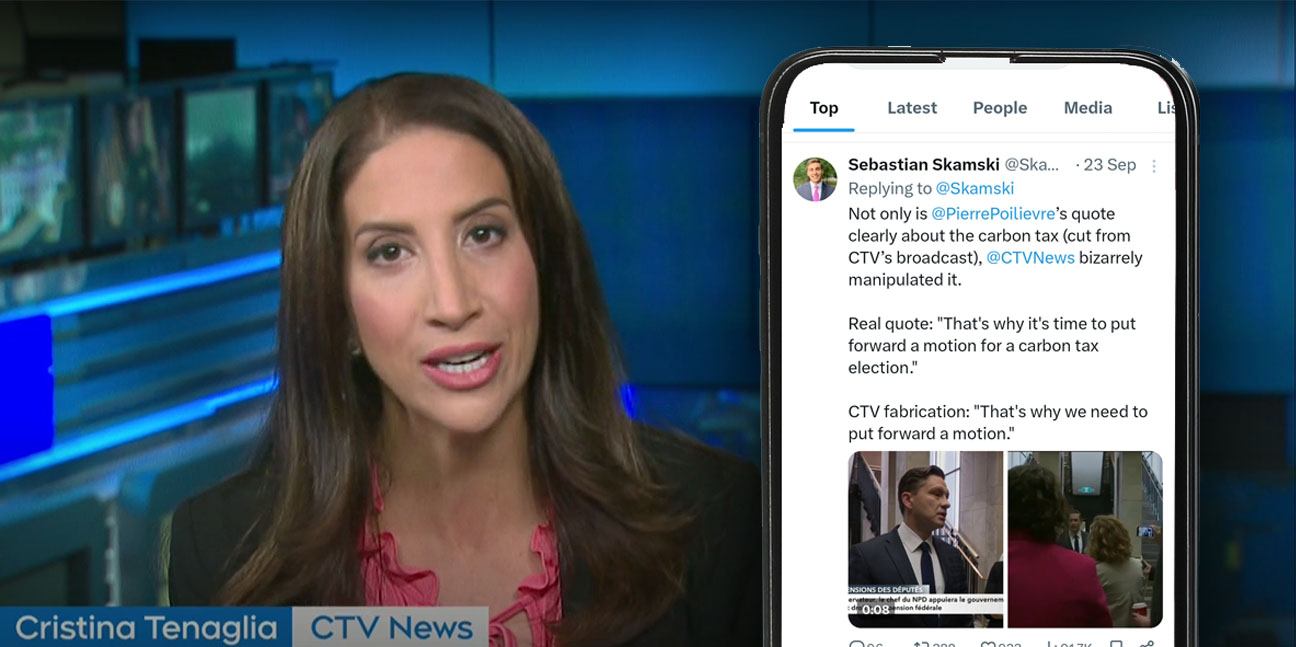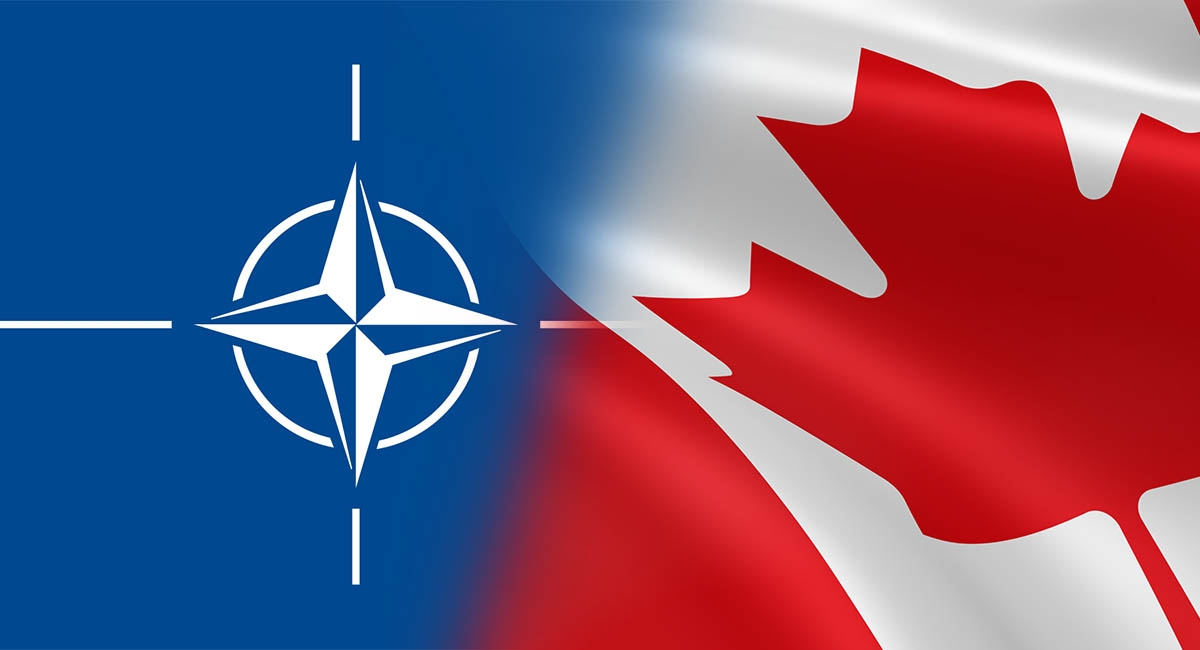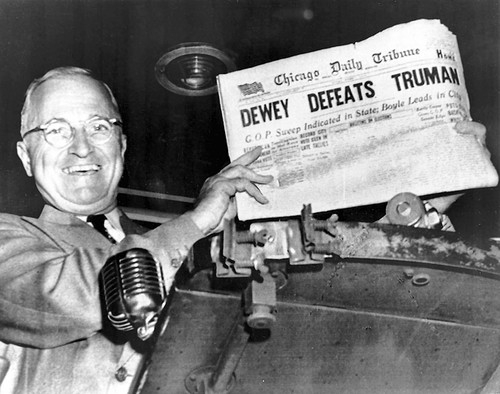
Worrying CTV Misreporting Shines Light on Canada’s Telecommunication Problem
Last week, CTV News was caught in the act of splicing together different audio clips of Pierre Poilievre’s voice to forge a fabricated soundbite that was broadcast to millions of Canadians.
CTV’s segment focused on the government’s dental care program; reporter Cristina Tenaglia states in a voice over that “A week after Singh nixed his pact with the Liberals, the Canadian government released ads, noting that close to 650,000 Canadians have already received care. While the continuation of the plan appears safe for now, the events of the last week have raised new questions over the plan’s future.”
Tenaglia’s voice-over is followed promptly by the manufactured soundbite, spliced strategically to imply that Poilievre’s Conservatives are seeking to put forward a confidence vote on the basis of the Liberals’ dental program. “That’s why we need to put forward a motion,” Poilievre appears to answer in response to a question about opposing dental care. In reality, this question was never asked.
In response, Sebastian Skamski, Poilievre’s Director of Media Relations, called attention to the incident on X. Skamski pointed out that not only was Poilievre’s voice rearranged to fabricate a sentence he never said, but also that his comments had nothing to do with the Liberals’ dental plan. Instead, Poilievre’s original comments concerned putting forward a motion for a carbon tax election, which has always been central to his platform. “This is not only a total fabrication designed to deceive Canadians but also a major breach of journalistic ethics”, Skamski wrote.
“You spliced three parts of different sentences together to create a new one that Pierre never said. That’s not a misunderstanding during editing, that’s fabricating disinformation. Where is your apology for that?” fired back Conservative MP Chris Warkentin on X.
Skamski announced that members of the Conservative caucus will no longer engage with CTV News or its parent corporation, Bell Canada, effective immediately. This edict will remain in effect “until they [CTV] explicitly acknowledge their malicious editing & omission of context to undermine Pierre Poilievre,” said Skamski.
Skamski is right: CTV’s reporting certainly mischaracterizes Poilievre, but the incident also raises questions about the state of journalistic accountability in Canada. This ought to be concerning to Canadians of all political affiliations.
The waters of journalistic accountability are muddied even further when taking into consideration the oligopoly that rules Canada’s telecommunication landscape. In fact, a 2019 report from the Canadian Radio-Television and Telecommunications Commission found that 90.7 percent of Canada’s wireless market is held by Canada’s “big three” (Bell, Telus, and Rogers) as a result of federal regulations that inhibit competition.
Bell Canada, the parent corporation of CTV news, has also landed in hot water after receiving $40 million of relief from federal programs. Meanwhile, Bell Canada has cut 9 percent of their media workforce, is overcharging Canadians to operate their phones, and awarded their six highest-paid executives $35 million in bonuses.
Poilievre said on X: “How does the CEO of Bell get $13 million the year before his company gets downgraded to one level above junk bond status? This is the crony capitalism of the Trudeau’s state-run economy. Politicians protect big oligopolies against competition, and those oligopolies use their media arms to give politicians glowing coverage.”
Given a federally-protected telecom landscape, subsidized mismanagement, and faced with a longstanding Conservative campaign to free up the Canadian telecom market, it is no wonder that Bell is anxious to keep Trudeau’s Liberals in office by any means necessary—even broadcasting intentionally dishonest media across Canada.
HEADER IMAGE: Screencapture of CTV reporter Cristina Tanaglia via “Will the inflation rate lower interest rates?” – September 17, 2024, 11:23 a.m. RIGHT: Inset image via @samski









